Picture this.
You landed your dream client, and the time’s come to dazzle them with your writing prowess.

You reassure yourself by saying, “I’m a wordsmith. How hard could it possibly be?”
Little did you know, it’s not always about the choice of words and pretty sentences you string together, but the concrete layer of research that gives character and credibility to your piece.
Before your dream client decides to turn you into a mere acquaintance, you might want to familiarize yourself with the unsung hero of the writing process. Research is the name of the game.
Here are four ways to beef up your research game and give your write-up the authority it commands.
Connect With Experts Through HARO
Expert quotes give your blog posts a total makeover by infusing a sense of trust and know-how.
When you bring in an expert to corroborate what you’re saying, your article’s value hits a new high.
Since an authoritative voice has come into the picture, your audience will be content knowing they’re receiving guidance from a believable source.
Good news for you, right?
It amps up your authenticity and addresses your readers’ concerns head-on.
If you don’t have industry experts in your network, it’s not all doom and gloom. HARO (Help A Reporter Out) is a valuable online platform that connects writers to trustworthy sources.
All you have to do is visit www.helpareporter.com and create your account, followed by a query.
Here, you’ll want to mention the media outlet you’re writing for, a summary of the content you need, specific requirements from experts/sources, and the due date.
Hit submit, sit back, but don’t relax. Use this time to structure your article and begin writing comparatively easier sections.
Once HARO approves your query, be ready for an influx of pitches in your inbox.
HARO proves useful, especially when your knowledge of the allotted topic is limited.
Moreover, the information provided by an expert can help you outline the article so that it reads seamlessly.
However, you’ll want to send a query well in advance of your deadline since going through pitches and gathering responses may take a few days.
Look For References Used By Competitors
When it comes to research, your competitors can become valuable allies. Sounds contradictory, no?
Writing about a topic that competing businesses have previously covered essentially means you have a ready platter of research material. We’re talking case studies, scholarly journals, and expert quotes.
As I was researching the benefits and safety of Moringa powder, I came across a VeryWellHealth article. It cited data from Phytotherapy research on the Safety and Efficacy of Moringa oleifera.
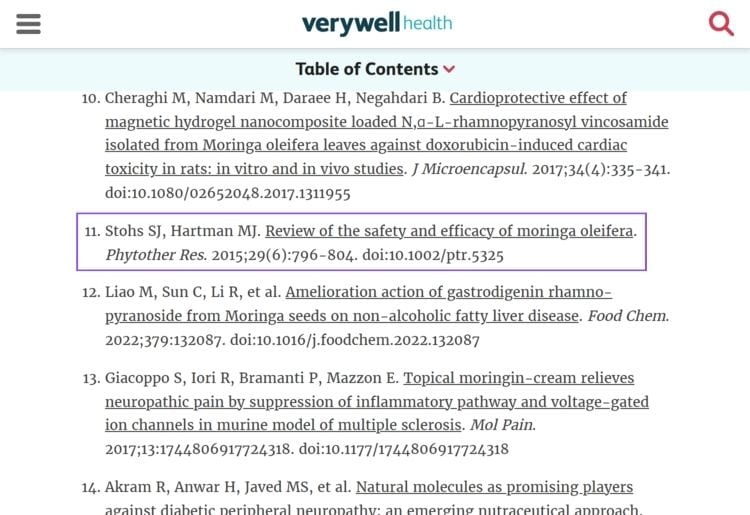
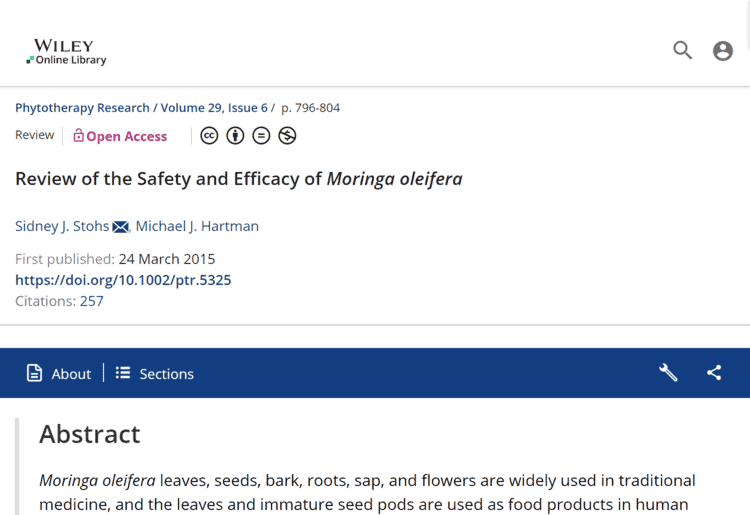
Similarly, researching consumer buying habits by generation led me to this Clearvoice article.
It referenced data collected by the U.S. Bureau of Labor Statistics on various generational expenditures.
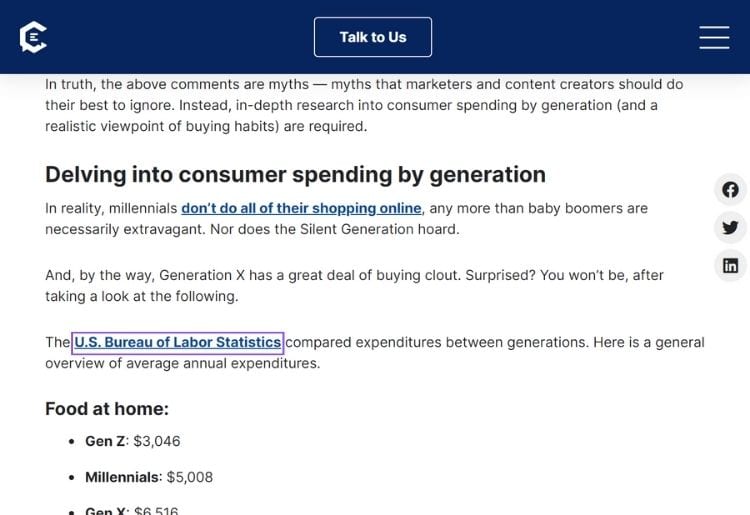
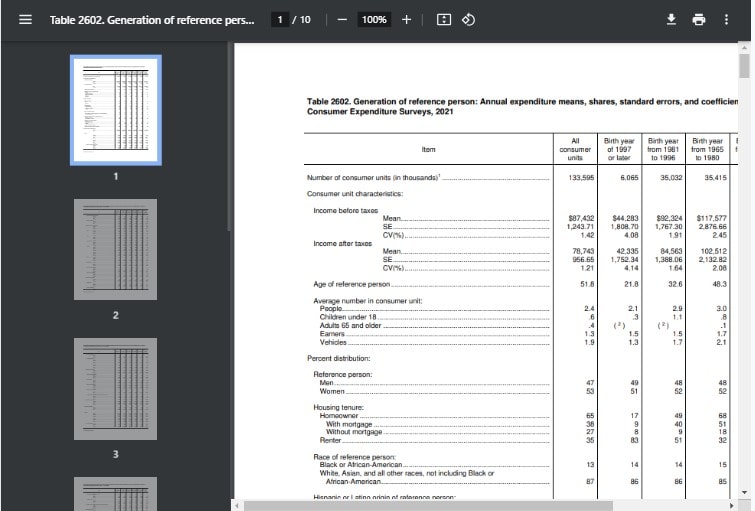
This research strategy is a lifesaver when you have a tight deadline and your primary research needs to be on point. However, a word of caution: Don’t solely rely on your competitors for fact-checking.
You may want to do some digging of your own.
Find Unique Data On X
With regurgitated and monotonous content flooding the first page of Google, readers may feel that their pain points aren’t being adequately addressed.
That’s where X (formerly known as Twitter) comes in with its expert tweets, adding a dab of uniqueness to your writing.
But you may ask, “How exactly do I find the perfect quote from an expert on X?” It’s simple:
- Open X and follow experts in your niche (this can take a while if you’re a new user, but ensure the experts you follow bring substantial value to the table)
- Enter your topic in the search bar
- Turn on the “people you know” filter
Voila. You’re looking at fresh content with unique perspectives in your niche. Quote these experts to bolster your writing piece.
Make Government Websites Your Go-To
Want your article to reflect a strong and authentic voice?
You can’t go wrong with incorporating government websites in your research strategy.
Let’s say you’re putting together a comprehensive article on student loans and you’re on the lookout for government backing to support your writeup.
There are over 5,300 .gov domains. So, how do you trim the fat? Key in “[search keyword] site: .gov” into Google’s search bar.
Using the student loan example, the results will look something like this:
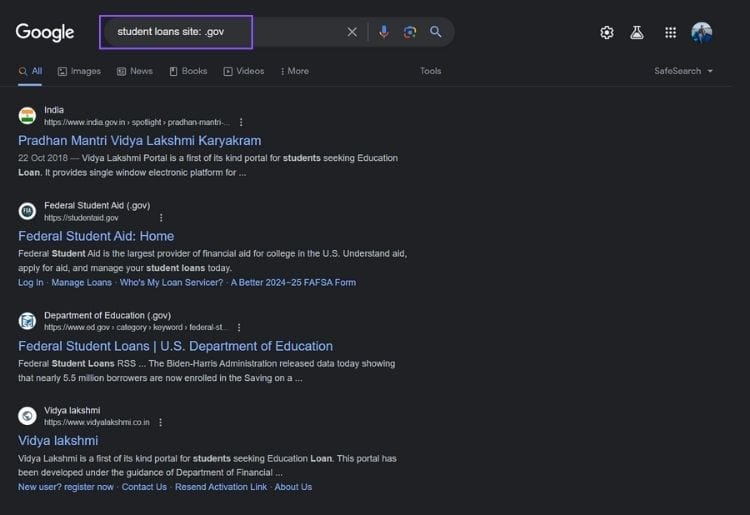
This search format will spare you endless hours sifting through websites, and you’ll get a solid primary source of information.
However, if you’re looking for information within a particular government website (say the US Department for Education) and not in the mood to manually sift through it, enter the website’s name in the Google search bar, followed by the keyword: “[student loans] site: ed.gov”.
The results page will display “student loans” pages from your chosen government website (in this case: from the US Department for Education).
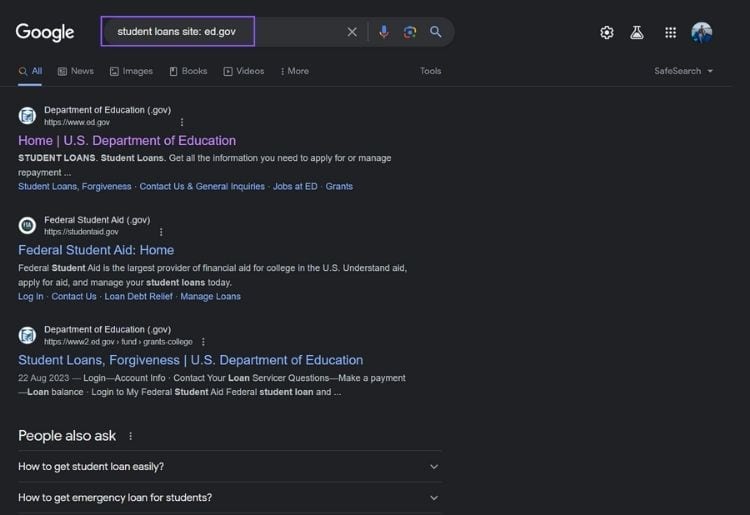
Access Research Studies Through Google Scholar
Journal articles on Google Scholar are a godsend when it comes to corroborating key points in your article.
Assuming your client builds exercise equipment for older adults, you could write a piece about the “5 life-transforming exercises as you age”.
While detailing the exercises and their benefits is impactful, backing your statements with links from Google Scholar studies adds a layer of authority.
For instance:
- Seniors with grandchildren are likely to engage in transport-related physical activities.
- Exercise is equivalent to medicine for older adults.
- Water-based exercises reduce stress on joints.
See how that changed everything? Concrete evidence not only leads to client satisfaction but also injects credibility into your work.
I find the Spaywall Chrome extension tool handy for bypassing paywalled journals. If they’re free, just hit “PDF” as seen below:
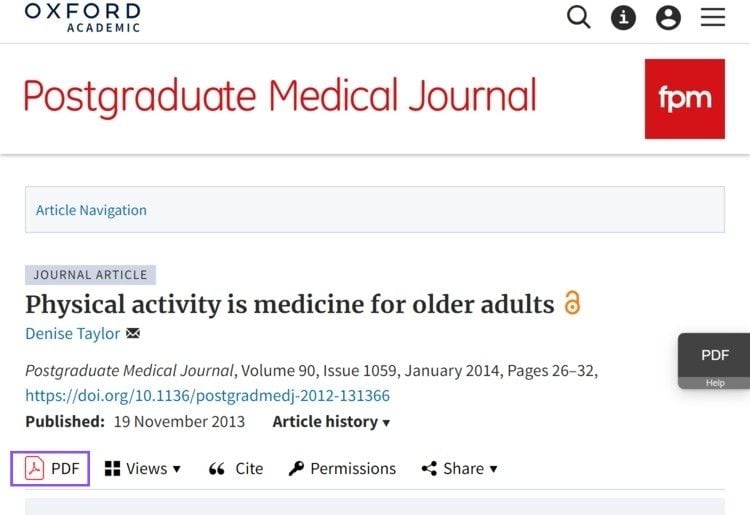
Never Go Wrong With A Research-Backed Article
There you have it—four solid ways to make research an integral part of your writing process.
Research is the backbone of your writing, creating the perfect foundation atop which your words can effortlessly flow.
When your client sees the extra effort you put into crafting high-quality work that’s backed by research, you become indispensable to them, and your article gains increased value in the eyes of the target audience.



Leave a Reply